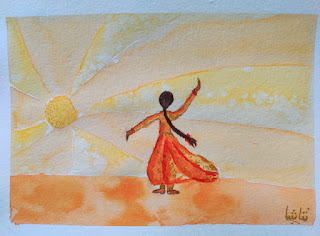I was discussing the Mahabharata with another lady. “Draupadi and Karna are my favourite characters”, she said.
“Draupadi I
can understand. But why Karna?”, I asked.
“I love his
character so much. He was such a noble person.”
“Noble?
Karna? He was the one who instigated the ‘vastraharan’ of Draupadi. How can you
call him noble?”
“But he was
a loyal friend. I place loyalty above anything else.”
This exchange
left me shaken up. Yes, loyalty is an important quality. But does loyalty mean
that you remain silent when your friend is doing something wrong? In fact, doesn’t
loyalty require a person to prevent a friend from doing the wrong thing?
To make
things worse, in this particular case, Karna was not even a mute spectator. He was
an active participant in the sexual assault on Draupadi. It was Karna who had the
idea of disrobing her. It was Karna who insulted her and questioned her
chastity. It was Karna who silenced Vikarna when he tried to dissuade his
brothers from humiliating Draupadi.
No matter
how you look at it, Karna was a perpetrator in the sexual assault of Draupadi. Yet,
women defend him because he was “a loyal friend”.
It is the
same thought process that kicks in when a woman tries to complain of sexual harassment
or sexual assault. Her complaint is weighed against the perceived virtues of the
perpetrator, and she is found wanting. His crimes are forgiven because he is a
top performer, because he comes from a well-respected family, because no
complaint has ever been made against him. In the process of making excuses for
him, she is disbelieved and her complaints are dismissed.
Karna was an
accessory in the sexual assault of Draupadi. As long as we continue making
excuses for him, how can we hope to end gender based violence?



